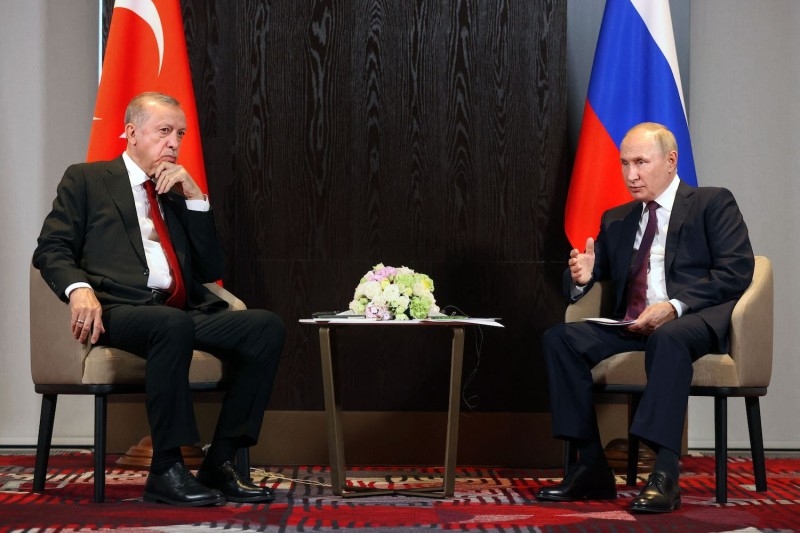During a period of heightened global political unrest, Turkey’s President Recep Tayyip Erdogan has reaffirmed his country’s expanding ties with Russia, despite growing international calls for Ankara to bolster Western sanctions against Moscow. Erdogan underscored Turkey’s intricate global position in an exclusive interview with CNN, ahead of the upcoming presidential runoff election.
“We haven’t reached a stage where we’d impose sanctions on Russia similar to the West. We aren’t obligated by Western sanctions,” Erdogan declared, highlighting Turkey’s independence and self-reliance. He continued, “Russia and Turkey are essential to each other in every conceivable domain.”
Erdogan’s favorability towards Russia distinguishes him from his main opponent, Kemal Kilicdaroglu, in the imminent presidential election. Kilicdaroglu, promising to repair the tense relations between Turkey and the West, presented a divergent view, aiming to adjust Ankara’s ties with Moscow from a leader-centric rapport to a more state-centric relationship.
The political climate, however, has grown more charged recently. Kilicdaroglu amplified his accusations against the Kremlin, alleging its meddling in Turkey’s election, and threatening to destabilize the relationship between the two countries. “If you desire our friendship to persist post-May 15, refrain from tampering with the Turkish state,” Kilicdaroglu cautioned.
Despite this, Erdogan remains unwavering in his partnership with Russian President Vladimir Putin, even suggesting that the West should strike a more even-handed stance towards Russia. Erdogan emphasized the fruitful outcomes of his relationship with Putin, such as the Black Sea Grain Corridor Initiative, which has facilitated the movement of millions of tons of wheat stranded due to Russia’s invasion of Ukraine, averting a potential worldwide food crisis.
Turkey’s elevated geopolitical status is further enhanced by its mediatory role in the Ukraine-Russia conflict, as shown by Erdogan’s initiative to facilitate a prisoner exchange between the two countries. Nevertheless, these close connections with Putin have created discomfort among Western allies.
In terms of internal affairs, Erdogan’s position has significantly impacted Turkey’s foreign policy, especially regarding NATO. Turkey, home to NATO’s second-largest military force, has blocked Sweden’s admission to the alliance, alleging that Sweden is a safe haven for militants from the outlawed Kurdistan Workers Party (PKK). Erdogan’s clash with Sweden arises amidst ongoing tensions with Western nations, including the U.S, where President Joe Biden referred to Erdogan as an “autocrat” during his 2020 election campaign.

Facing significant hurdles such as a struggling economy, the aftermath of a major earthquake, and allegations of undermining democracy and freedom of speech, Erdogan is nonetheless hopeful as he heads towards the May 28 presidential runoff. He confidently told CNN that he anticipates his party’s robust parliamentary performance to enhance his presidential prospects.
Despite the headwinds, Erdogan attained a five-point lead over Kilicdaroglu in the first round of the election held on May 14. However, neither contender managed to cross the 50% mark required for a presidential victory, setting the scene for a tense runoff. This outcome defied public opinion polls that had suggested a marginal lead for Kilicdaroglu.
Central to the electoral campaigns is the heated debate over the almost 4 million Syrian refugees residing in Turkey. While Kilicdaroglu pledged to expel Syrian refugees, Erdogan committed to facilitating the voluntary return of around a million refugees to Syria. He mentioned that his government is constructing infrastructure and residences in Turkish-controlled regions of Syria to enable their resettlement.
The Turkish presidential elections thus are unfolding against a broad backdrop, mirroring a nation dealing with economic woes, regional disputes, and a complex web of international alliances. As the electoral saga continues, the global community awaits the future course of Turkey under its next leader.
©world-news.biz
